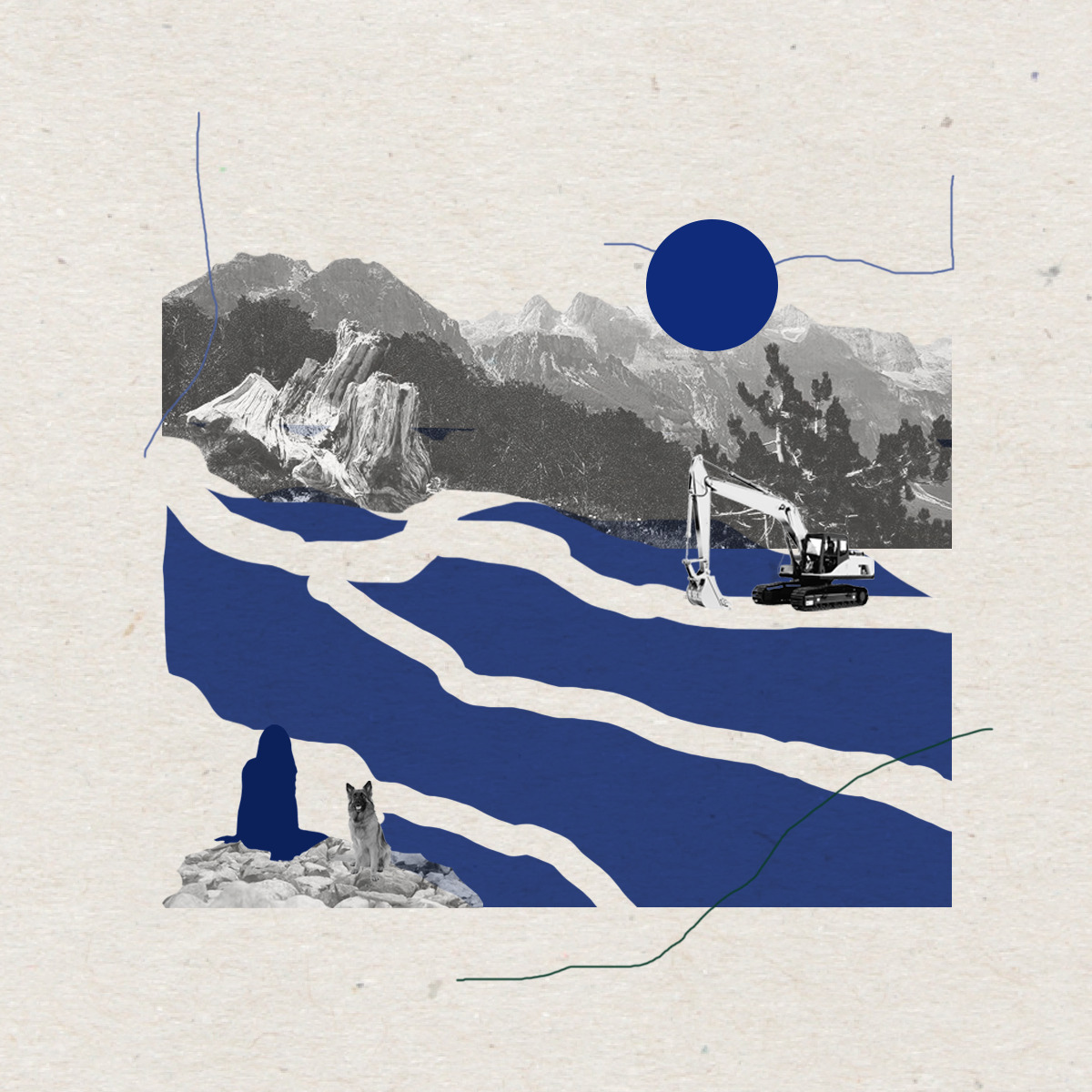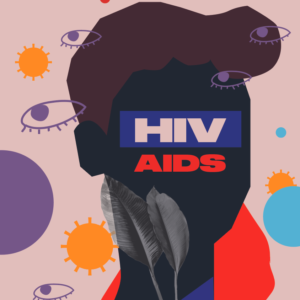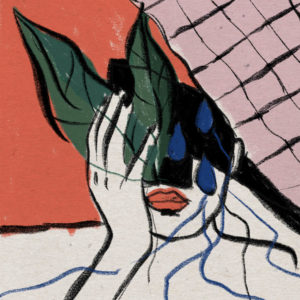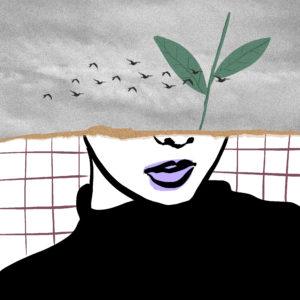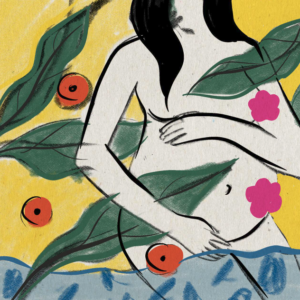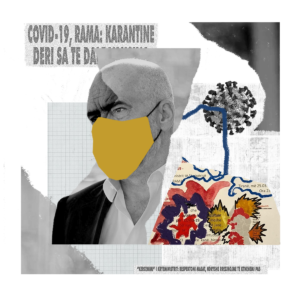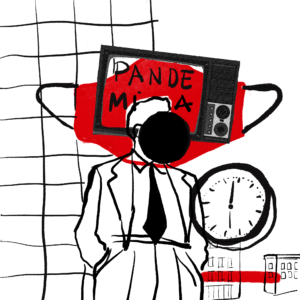The Upstream Fight to Save the Valbona River
I am having the first lazy Sunday in weeks. Which means I am in my pajamas—sweatpants, night-sweat soaked T-shirt, and my beloved çizme (gumboots). The right heel is split and so the right boot is no longer even faintly waterproof, but still. Çizme. The sign of a proud fshatare (villager). Mine are permanently mud-caked. Take that New York—I have truly left. I am tying out 15-meter-long ropes on the kodër (hill), trying to figure out where I can put my horses to graze for the day, without them either getting hopelessly tangled, or stepping on any of the numerous graves that spot the hills around my house, while still letting them get to some grass.
An immaculately dressed man appears on the narrow footpath from Bashaj, emerging from the forest. When the handful of dogs who as ever hover around me start barking at him, he laughs and calls to them. “Hajde!” Usually, people shriek and reach for stones. He spots me. “Oh! You!,” he calls. “How are your activities going? I’ve seen you on TV,” he says, delighted, “for years!” I try to look modest and pleased, instead of rolling my eyes, or rolling into a defensive ball. I don’t necessarily like being known. I thought that when I came here, I’d given up all that. I thought I would just live quietly—make bread, read books, go hiking… and then the hydropower came… And I ended up on television. But he seems like a nice man, so we stand and chat. The dogs decide we’re boring, and wander off.
“You should be careful,” he tells me, “if you take too much on, you will damage your health.” He’s been asking me what I’ve been doing, how work was going, and I vaguely mentioned being worried about the 8 kilometers of sand extraction destroying the Valbona and lower Gashi Rivers.
I decide to answer him honestly, as I usually do, despite being fairly sure that people won’t really be interested in my philosophical stabs.
“But if I see something bad happening, it hurts me. Whether or not I do something. And if I do nothing, I feel bad about that too. So in the end I am less disquieted if I fight.”
*
There’s been plenty to fight about, ever since 2016. Maybe since 2014, when the Tplani hydropower construction started in a lackadaisical, brutal, but sporadic way. Maybe it started with Avni Byberi’s gurore (rock quarry), inside the boundaries of the national park. I don’t even remember when that started. It used to be the thing that upset me. The growing ugly scar on the face of a pristine landscape. Alfred and I used to drive past it. “They’re looking,” he’d hiss, “put the camera down.” Back then I had no idea how to fight. Only the sense that I should. So I’d take pictures, thinking if people knew what was going on, they’d stop it. But it was dangerous. Everyone knew that. Not exactly why, just vague fears, threats, shadows. The things that get hinted at, avoided, in a small, tight-knit community just emerging from a recent history of violence.
In 2016, when we learned of the plans for Gener 2’s “Dragobia Energy” hydropower projects, it seemed that the time for hiding was past. This was big, and it was bad. We had to come out fighting. I had some ideas—and still the hope that if people knew, they would stop it, it would stop. Be stopped. But mostly I didn’t really know what I was doing. But then again, neither did anyone else. So we organized protests, requested information, and I talked and talked and talked. On the media, to diplomats. We grabbed any idea that floated past us, and tried it. We filed requests, we made art projects, we filed complaints, we had a concert, we filed lawsuits.
By 2019, after almost four exciting but exhausting years, everything had ground to a halt. Four administrative lawsuits, two criminal complaints, numerous appeals, injunction requests (even when upheld), spawned cases—everything was doing nothing. The construction of the hydropower plant continued. We had successfully changed the perception of hydropower and national parks in Albania. No one thought small hydropower was a good thing anymore. Everyone thought national parks should be protected. Everyone knew what was happening in Valbona. Everyone was angry. Major politicians accused each other of creating the problem. No one took responsibility for fixing it. The developer was publicly shamed. Nothing changed. I’d been wrong. It wasn’t enough that people knew. It needed something more. And what that something was, I had no idea. I stopped talking. I couldn’t keep saying “we will win” publicly, when we clearly weren’t, and when I had no idea what to do next. So I stayed silent. And I thought. I did talk to some people. Went to conferences. Got ideas. I mused. I pondered. And I felt guilty. But I waited. I still didn’t know what to do.
*
The nice man from Bashaj and I chat for a while more. He warns me about allowing mashtrues (deceivers) near me. I am still not completely sure what this word means, but I know it is bad. “It’s good,” he says, this man I’ve never seen before, “that you keep the dogs near you. Never go anywhere without the dogs.” This surprises me, as most people tell me I’m crazy to live with dogs, that I should get rid of them. He must see my surprise because then he says: “If you weren’t a woman, they would have killed you. If you were a man, you’d be dead.” Small talk in Tropoja.
By spring 2020 I was definitely disquieted by doing nothing. Nothing I had done had changed anything. Except that I was now a public figure. “The face of environmentalism in Albania,” wrote Kosovo2.0. But what good is that? A gnawing sense of my own uselessness, of the uselessness of everything, was in the air I breathed.
Within Albania, hydropower had become a byword for corruption, environmental destruction, and the coopting of government by powerful oligarchs, who for some reason insisted on pissing around with unprofitable projects, seemingly for the sheer joy of destroying natural beauty. I had been sued by the arch villain Gener 2 for “bothering” them (Bashkim Ulaj’s threat to me, spoken in the corridor of Tirana’s administrative court). We had exhaustively documented the illegalities of the projects, and yet, despite a stop-work order from the Tirana Appeals Court, the projects marched on. All of our legal strategies were blocked. The developers became adept at filing absurd objections which, when overruled, were nonetheless referred to the non-functioning high court of Albania for appeal, thus killing the cases dead, for five or ten years, depending on who you listened to. Somewhat ironically, the entire legal system had ground to a halt due to the rigorous anticorruption measures of the judiciary reform process. We were stuck. I was stuck. The destruction of the river continued. In five or ten years the river would be dead. I felt like I’d run to the end of what I knew, or could imagine.
I went swimming.
I suddenly realized that after years of fighting for this river, I hadn’t actually loved it. I hadn’t been in it. Hadn’t swum, hadn’t let its life flow around and through me, for ten years. So I returned to the river. I swam. I waded out into forest sun-dappled pools, and just sat in them, shivering, letting the cold of the river fill me, until I stabilized. Until I could have sat forever, in and with the river. Sitting and watching the river turn gold and green and blue as sunlight fell through the beech leaves. I read about Ora, about Zana. About all the female spirits of the wild.
*
The pandemic didn’t change much in Tropoja. There was a brief week, a few days really, when people thought twice about going to town. My friend Afërdita met me on the road as I was driving to town. “Where are you going?” she asked, nervous “It’s dangerous now, to get near people. When you get back, come over and have a coffee, so we can talk about it.”
Mostly the pandemic gave a good excuse for staying home. For being quiet. For living, and not fighting. Bajram Curri was a ghost town, but outside of that, life went on as normal. I tried to respect the scare by not driving. I didn’t go into Valbona for weeks, maybe months. While the rest of the world was reeling, in Tropoja we had just four cases. Meanwhile, the hydropowers continued constructing.
Summer started to draw to an end. And then the excavator arrived.
One morning, going to my horses, I found that the old dirt track to the river had mysteriously changed. Instead of ambling in front of the neighbors’ barn, a harsh new cut passed uphill, behind the barn.
The next morning, further along, I got caught behind the behemoth excavator, as it tore chunks out of the surrounding hill, leveling and widening the old dirt track. Sadik, the lord of the land, stood around watching their progress. I abandoned my car, and went the rest of the way on foot. I worried.
A day later, the new road was driven through to the river, and dump trucks started arriving. The excavator had taken up residency by the river. It clawed tons of sand from the river, deposited them in the waiting trucks, which duly rumbled off. Avni Byberi showed up. Fat, jolly, dangerous. “I’m just taking a bit of sand,” he told me, “for a little project. No more than a day or two.”
After a month, the truth emerged. The whole length of Valbona, from Bujan to Gashi, is being eviscerated of sand. Enormous trucks belch and rumble away from the river bed, one trackful every half hour. Traditional swimming holes are disappearing. The river runs gray. And where is the sand and gravel going? To a new hydropower project on the Gashi River—in the “strictly protected” Gashi Valley. The UNESCO world heritage forest of Gashi. A project owned by a company called “Breçani ROSP,” which is a front, or arm, or tentacle, of the vast destructive monster of Bashkim Ulaj’s Gener 2.
And I am freed.
“You have to do something,” hissed the man, as he took me by the shoulders and shook me. “They’re destroying the river. But he’s dangerous, we can’t fight him, openly. We shouldn’t even talk about it. Don’t speak on the phone, and don’t talk to anyone.”
So for a month I quietly made a strategy, gathered data. Friends filmed the men working, documenting the destruction, while I stayed visible, puttering around the horses’ meadow, shoveling shit. Me? Harmless. I started to put my chess pieces in line.
By now, Bajram Curri is bustling again. The streets are busy, the cafés are full of people drinking coffee. Only a few wear masks.
Then Nuredin comes to a meeting we hosted at the office of our environmental nonprofit, TOKA. A strategy training, attended by international experts. They have traveled from the Czech Republic, despite having to have Covid-19 tests before leaving, and despite having to do two weeks of quarantine when they return. Everyone is introducing themselves, politely explaining their issue of concern. It is Nuredin’s turn. He stands. “I am just here,” he says, “to say that Catherine, you have betrayed us. You haven’t done anything. The river is being destroyed. From next to your meadow. You allow them. You are a traitor,” he says. “That is what I have to say.” And he leaves, shaking off the voices that ask him to stay.
Around this time, two meeting attendees staying with me were hitching home from a restaurant. They were offered a ride by “some men in a truck.” When these two told them that they were staying with me, the men started laughing. “Oh!” they said “send her a message from us! Lejeni në gjumë.” They recorded it, to be sure. Let it rest!
And so I realize, there’s no more time. No more time for silence, no more time for hesitation or for insecurity. It feels good. I finish my “declaration of war,” which summarizes the current appalling condition and situation of the Valbona River, surprising even to me as I’ve seen it, seen the damaged length of the whole river in September, and I publish it. Share it. Push it. I think of all the voices that warned me that fighting this man, all these men, is dangerous. By now I have moved the horses back to my house. I can hear them thumping and bustling when I wake late at night. My wagons are circled. The creatures I love are close and safe, as safe as I am.
And I launch my strategy. To my own surprise I have one. The first step is to attack, and to be as visible and public as possible. To name names, and offend. Publicly. If I am sufficiently outrageous, I am safe. Because if anything happens to me, the men behind this know they will be blamed.
I am frightened. I have no idea if this man taking sand is really so dangerous. But everyone insists he is. “This is Tropoja.” The lawless land. That’s part of why I love it. Anything could happen here, really. But if the unexpected bad is anticipated, awaited, surely the unexpected good might just as well happen.
The stuck-ed-ness of the past year all had to do with the dysfunction of the government, of the system. Well, we’ll just have to fix the system. When you eliminate the ineffective, the effective, no matter how seemingly impossible, is all that remains. So we launch a campaign to get as many people as possible to request information from the government. This will out the problem. It will stress the agencies. It will become media-worthy. Everything we do will become visible. And with numbers, each of us will be more safe.
So far, it’s going well. But my fear today is that the sand extractors will simply pack up and leave. Winter is coming. The river is rising. The long days of summer, when the river lies open and lazy are over. The men might stop any day now, and then where is the proof?
The past two evenings, I wandered across Dubrova, walking my dog Ana, aka “the Terror of Tropoja,” a huge Kangal, across the gloriously green, post-rain meadows. We meander to the edge of the escarpment, overlooking the river. The excavator was still there. Good. The enemy is still here, quite indefensible, really. And this is important. Because answers to our inquiries have already started coming. There is no permit for extracting sand. So what is happening to the river is an environmental crime. And this, with so many people participating, watching, demanding, should surely result in something.
Unless they leave. Then there’s no proof. No proof of who did what. We need proof. We need license plates, I think. And that means photos. I think about asking a man to go with me. But who? All the men I know are frightened. And I don’t blame them. They have families, children, jobs. We know from before that the guards will attack and punch men. Grab their cameras. I hear the voice of the man who came from Bashaj: “It’s good that you’re a woman.” So young Gerta and I go, with Ana. It’s my meadow anyhow, I’ve paid the rent. Ana runs across the field. But we’ve timed it wrong. They aren’t at lunch. The excavator is pouring the river’s guts over a rough sieve, onto the back of a truck. I’m getting bored with this, bored with caution, so I take out my phone, and take some pictures. Even if I can’t see the license plates, the trucks are recognizable, and we can prove the date. “They’ve seen us,” says Gerta. “And the driver is picking up his phone.”
The meadow is green under our feet. The recent rain has fed it. I think how much my horses would enjoy it, but it isn’t safe. We turn and walk away, Ana is silently pacing by our side. We get back in the car, and drive away only to continue again, tomorrow and the next day…
